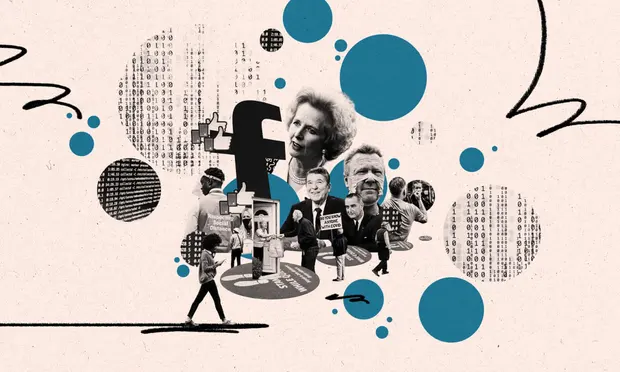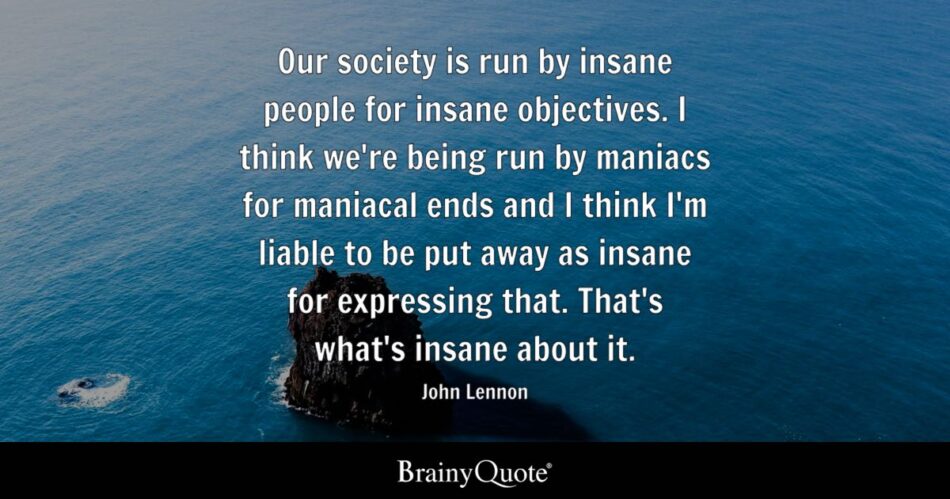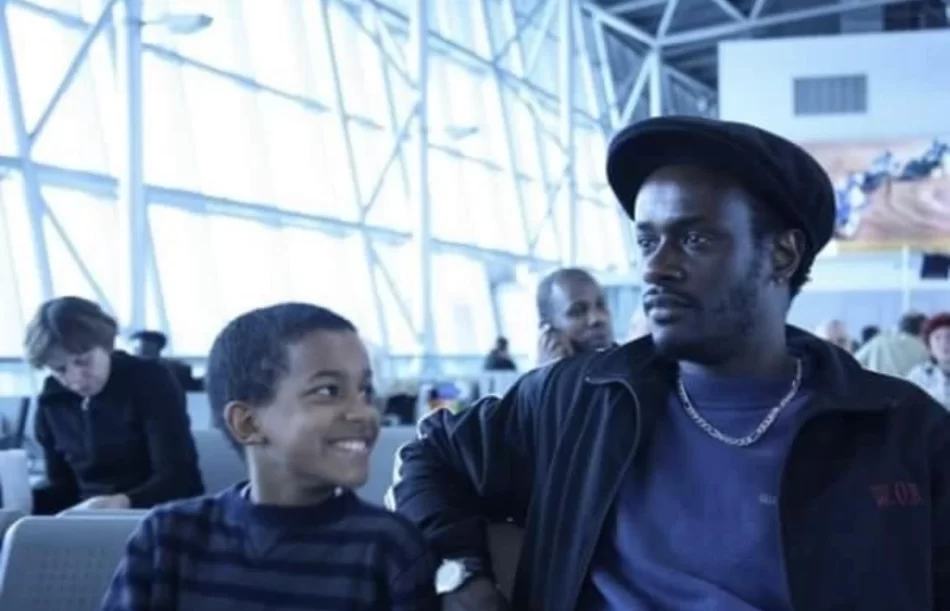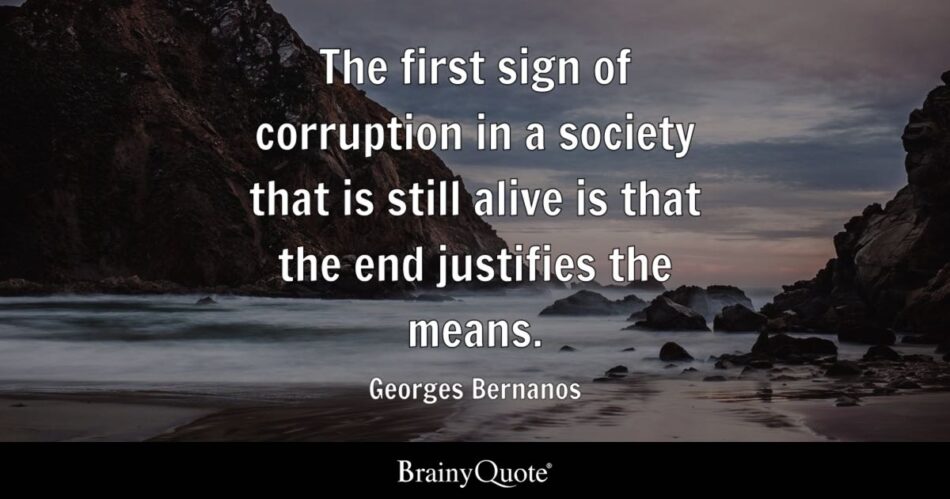
Summary: Society of the Snow is a technically well-made film that grounds itself in the humanity of its characters facing an unimaginable crisis. The film effectively depicts the harrowing true story of a devastating plane crash that left a group of survivors stranded in the Andes mountains. The technical details and immersive presentation make the film emotionally profound, but the narration can be reductive in not letting the visuals speak for themselves.

In 1972, a plane crashed in the Andes and its survivors spent 72 days in the snow.
Page Description
Explore a society willing to do anything to hide failures:
suffering from injustice in a world where not everyone shares the same moral compass.
Innocent individuals suffer due to flawed justice systems & institutional cover-ups, exemplified by cases like The Central Park Five.
Take someone for a ride
Idiom informal
To deceive or cheat someone
I think we’ve been taken for a ride.
Cambridge Dictionary
A Mirror to Society: What Does It Mean to Be Human?
Is This Still a Society?
In a world where injustice often masquerades as justice, and human dignity is traded for convenience or power, we must ask ourselves: What defines a society? Is it our laws, our institutions, or the values we collectively uphold?
This page explores cases that challenge the very fabric of societal conscience. From the haunting story of George Stinney’s tragic execution to the wrongful accusations faced by countless others, these examples remind us that turning a blind eye to injustice is no less a crime than the acts themselves.
Through deeply moving accounts, shocking revelations, and videos that highlight both humanity’s darkest moments and its redeeming light, we delve into stories that demand our attention. The Post Office scandal, an emblem of systemic betrayal, stands among these, urging us to reflect on the cost of negligence and the courage required to confront it.
Whether it’s the tale of a judge recognizing a former classmate in court, or the tragic story of Sanda Dia, this page challenges us to reconsider what it means to belong to a society — and whether we are living up to that standard.
Let us not just read and observe but also question: Is this the kind of society we want to uphold?
Een Spiegel voor de Samenleving: Wat Betekent Het Om Menselijk te Zijn?
Is Dit Nog Een Samenleving?
In een wereld waar onrecht vaak wordt gepresenteerd als rechtvaardigheid, en menselijke waardigheid wordt opgeofferd voor gemak of macht, moeten we ons afvragen: Wat definieert een samenleving? Zijn het onze wetten, onze instellingen, of de waarden die we samen hooghouden?
Deze pagina onderzoekt zaken die het geweten van de samenleving op de proef stellen. Van het aangrijpende verhaal van de tragische executie van George Stinney tot de onterechte beschuldigingen waarmee ontelbare anderen zijn geconfronteerd, laten deze voorbeelden zien dat wegkijken van onrecht net zo schadelijk is als de daden zelf.
Door diep ontroerende verhalen, schokkende onthullingen en video’s die zowel de donkerste momenten als de verlossende kracht van de mensheid laten zien, belichten we verhalen die onze aandacht eisen. Het Post Office-schandaal, een symbool van systematisch verraad, staat centraal en roept ons op na te denken over de prijs van nalatigheid en de moed die nodig is om deze aan te pakken.
Of het nu gaat om een rechter die een oude schoolgenoot herkent in de rechtszaal, of het tragische verhaal van Sanda Dia, deze pagina daagt ons uit om opnieuw te overwegen wat het betekent om deel uit te maken van een samenleving — en of we aan die standaard voldoen.
Laten we niet alleen lezen en observeren, maar ook de vraag stellen: Is dit de samenleving die we willen ondersteunen?
1 Introduction
Individuals without a conscience
When we witness life in all its forms passing before us, sometimes we can’t help but reflect on the essence of what’s happening in society.
Below are 3 points:
1 When people say that someone “has no conscience”,
they are referring to individuals who exhibit behavior that lacks moral awareness, empathy, or consideration for others. This can include actions that harm others without remorse or regard for ethical standards.
These individuals may act in ways that betray the trust in society or exploit the vulnerability of others for personal gain. They might manipulate, deceive, or harm others without feeling guilt or remorse for their actions.
In psychology, such individuals might be described as having traits associated with psychopathy or sociopathy, which are characterized by a lack of empathy, remorse, and conscience. However, it’s important to note that not everyone who exhibits harmful behavior fits neatly into these diagnostic categories, and the reasons behind such behavior can vary widely.
Overall, the phrase “has no conscience” captures the idea that some individuals seem to lack the moral compass or inner sense of right and wrong that guides most people’s behavior, leading them to act in ways that are harmful or unethical.
2 Pondering the concept of someone having no conscience can lead to deeper reflections on human behavior and morality.
When we say someone “has no conscience,” we’re essentially highlighting their apparent lack of moral awareness or empathy. This absence of conscience allows them to engage in behaviors that disregard the well-being or rights of others without experiencing the typical feelings of guilt or remorse.
Reflecting on this notion can prompt questions about the nature of morality, empathy, and the factors that shape individuals’ ethical behavior. It may lead to inquiries into psychological theories such as psychopathy or sociopathy, which attempt to explain why some individuals seem to lack these moral sensibilities.
Moreover, contemplating the existence of individuals without a conscience may prompt considerations about societal norms, justice systems, and the ways in which communities address harmful behavior. It could also inspire discussions about empathy, compassion, and the importance of fostering ethical behavior in individuals and institutions.
Overall, exploring the concept of individuals without a conscience can spark meaningful reflections on human nature, morality, and the complexities of navigating a world where not everyone shares the same moral compass.
3 The notion of individuals without a conscience can be deeply intertwined with discussions about unsafe convictions.
Unsafe convictions occur when individuals are wrongly convicted of crimes they did not commit, often due to errors or biases in the criminal justice system.
In cases where individuals lack a conscience or exhibit psychopathic/sociopathic traits, they may be adept at manipulating others, including law enforcement, witnesses, and even juries. Their lack of empathy or remorse may make it easier for them to deceive others and maintain a façade of innocence, even when evidence suggests otherwise.
Moreover, individuals without a conscience may engage in behaviors that lead to false accusations or wrongful convictions of innocent individuals. They may fabricate evidence, manipulate witnesses, or engage in other deceptive tactics to shift blame away from themselves onto someone else.
Reflecting on this connection can raise important questions about the reliability of witness testimony, the validity of evidence, and the effectiveness of investigative procedures in ensuring fair trials. It underscores the need for safeguards within the criminal justice system to prevent wrongful convictions and protect the rights of the accused.
Furthermore, it emphasizes the importance of thorough and unbiased investigations, as well as the critical role of legal professionals, psychologists, and other experts in identifying potential manipulative tactics employed by individuals without a conscience.
Overall, considering the relationship between individuals without a conscience and unsafe convictions highlights the complexities and challenges inherent in the pursuit of justice and the need for continual improvement within the criminal justice system.
Wanneer we het leven in al zijn vormen aan ons voorbij zien gaan, kunnen we soms niet anders dan nadenken op de essentie van wat er in de samenleving gebeurt.
Hieronder volgen 3 punten:
1 Wanneer mensen zeggen dat iemand “geen geweten heeft”,
verwijzen ze naar individuen die gedrag vertonen dat gebrek aan moreel bewustzijn, empathie of respect voor anderen vertoont. Dit kan onder meer handelingen omvatten die anderen schaden zonder spijt of respect voor ethische normen.
Deze individuen kunnen handelen op een manier die het vertrouwen in de samenleving schaadt of de kwetsbaarheid van anderen exploiteert voor persoonlijk gewin. Ze kunnen anderen manipuleren, bedriegen of schaden zonder schuldgevoel of spijt te voelen voor hun daden.
In de psychologie zouden dergelijke individuen kunnen worden beschreven als het hebben van kenmerken die geassocieerd worden met psychopathie of sociopathie, gekenmerkt door een gebrek aan empathie, spijt en geweten. Het is echter belangrijk op te merken dat niet iedereen die schadelijk gedrag vertoont netjes in deze diagnostische categorieën past, en de redenen achter dergelijk gedrag sterk kunnen variëren.
Over het algemeen impliceert de uitdrukking “geen geweten hebben” dat het lijkt alsof bij sommige individuen er iets niet klopt aan het morele kompas of het innerlijke gevoel van goed en kwaad dat de meeste mensen stuurt, waardoor ze geneigd zijn om op een schadelijke of onethische manier te handelen.
2 Het nadenken over van het concept dat iemand geen geweten heeft kan leiden tot diepere reflecties over menselijk gedrag en moraliteit.
Wanneer we zeggen dat iemand “geen geweten heeft”, benadrukken we in feite hun schijnbare gebrek aan moreel bewustzijn of empathie. Dit gebrek aan geweten stelt hen in staat om zich bezig te houden met gedrag dat het welzijn of de rechten van anderen negeert zonder de typische gevoelens van schuld of spijt te ervaren.
Het nadenken over dit begrip kan vragen oproepen over de aard van moraliteit, empathie en de factoren die het ethische gedrag van individuen vormen. Het kan leiden tot onderzoek naar psychologische theorieën zoals psychopathie of sociopathie, die proberen uit te leggen waarom sommige individuen lijken te ontbreken aan deze morele gevoeligheden.
Bovendien kan het nadenken van het bestaan van individuen zonder geweten overwegingen oproepen over maatschappelijke normen, rechtssystemen en de manieren waarop gemeenschappen schadelijk gedrag aanpakken. Het zou ook discussies kunnen inspireren over empathie, mededogen en het belang van het bevorderen van ethisch gedrag bij individuen en instellingen.
Al met al kan het verkennen van het concept van individuen zonder geweten zinvolle reflecties teweegbrengen over de menselijke aard, moraliteit en de complexiteit van het navigeren door een wereld waarin niet iedereen dezelfde morele kompas deelt.
3 Het begrip van individuen zonder geweten kan diep verweven zijn met discussies over onterecht veroordeeld.
Onterecht veroordelen vindt plaats wanneer individuen ten onrechte worden veroordeeld voor misdaden die zij niet hebben begaan, vaak als gevolg van fouten of vooroordelen in het strafrechtelijk systeem.
In gevallen waarin individuen een geweten missen of psychopathische/sociopathische kenmerken vertonen, kunnen ze bedreven zijn in het manipuleren van anderen, inclusief wetshandhavers, getuigen en zelfs juryleden. Hun gebrek aan empathie of spijt kan het voor hen gemakkelijker maken om anderen te misleiden en een façade van onschuld te handhaven, zelfs wanneer het bewijs het tegendeel suggereert.
Bovendien kunnen individuen zonder geweten gedrag vertonen dat leidt tot valse beschuldigingen of onterechte veroordelingen van onschuldige personen. Ze kunnen bewijsmateriaal fabriceren, getuigen manipuleren of andere bedrieglijke tactieken gebruiken om de schuld van zichzelf af te schuiven op iemand anders.
Het nadenken over deze relatie kan belangrijke vragen oproepen over de betrouwbaarheid van getuigenverklaringen, de geldigheid van bewijsmateriaal en de effectiviteit van onderzoeksmethoden om eerlijke processen te garanderen. Het benadrukt de noodzaak van waarborgen binnen het strafrechtelijk systeem om onterechte veroordelingen te voorkomen en de rechten van de beschuldigden te beschermen.
Verder benadrukt het belang van grondig en onpartijdig onderzoek, evenals de cruciale rol van juridische professionals, psychologen en andere experts bij het identificeren van mogelijke manipulatieve tactieken die worden toegepast door individuen zonder geweten.
Al met al benadrukt het overwegen van de relatie tussen individuen zonder geweten en onveilige veroordelingen de complexiteiten en uitdagingen inherent aan het streven naar gerechtigheid en de noodzaak van voortdurende verbetering binnen het strafrechtelijk systeem.

Despite Thatcher and Reagan’s best efforts, there is and has always been such a thing as society. – Illustration-Klawe-Rzeczy-Guardian-Design The-Guardian
1 Post Office accused of cover-up
Back to menu IMPORTANT CONTENT Listening recommended Must ***
2 Paula Vennells blamed ‘temptation’ of money in tills not IT system, Post Office inquiry hears
Back to menu IMPORTANT CONTENT Listening recommended Must ***
3 Post Office Inquiry: Lord Arbuthnot compares Government control of firm to ‘owning a dangerous dog’
Back to menu IMPORTANT CONTENT Listening recommended Must ***
10 apr 2024
Lord Arbuthnot has criticised the Labour government for avoiding responsibility for addressing the Horizon IT scandal in 2010.
The inquiry was shown a letter written by then business minister, Pat McFadden, in which Mr McFadden said the government had an “arm’s length” relationship with the Post Office.
Lord Arbuthnot said: “What this ‘arm’s length’ arrangement essentially means is that the government is refusing to take the responsibilities that go with ownership and I don’t think it’s right to do that for various reasons.
“One reason is that if you have an organisation that is as important to the community as the post office, then the people have got to be able to have proper control over it, if the people own it.
“There’s a sort of democratic deficit that is popping up here if the government is refusing to take responsibility for it.”
Lord Arbuthnot then compared the situation to the owner of a dangerous dog refusing to take responsibility for their pet.
10 Apr 2024
Former Post Office chief executive Paula Vennells suggested
“temptation” for subpostmasters to borrow money from tills was a problem, not the faulty Horizon IT system, the inquiry into the scandal has heard.
It was Lord Arbuthnot’s turn to give evidence, expressing his frustration at successive governments’ attempts to play down the issue whenever he raised it.
4 ‘Cash lying around’ might have led sub-postmasters ‘into temptation’, ex-Post Office bosses argue
Back to menu IMPORTANT CONTENT Listening recommended Must ***
10 apr 2024
Senior executives at the Post Office suggested that “lots and lots of cash lying around in unexpected places” might have meant sub-postmasters were led “into temptation”, rather than accept IT failings, an official inquiry has heard.
The hearing into faulty Horizon IT software at the Post Office, and the associated prosecution of hundreds of sub-postmasters for theft and false accounting, heard evidence from former North East Hampshire MP Lord Arbuthnot.
5 De Inzichten van Christine Mussche: “De meeste slachtoffers hebben nood aan erkenning”
Back to menu IMPORTANT CONTENT Listening recommended Must ***
17 nov 2020
De inzichten op één (VRT) is een reeks van diepgaande gesprekken met inspirerende gasten. Het programma werd samen met deMens.nu ontwikkeld als vrijzinnig humanistisch alternatief op de televisie naast de erediensten. Presentator Nic Balthazar. Alle afleveringen van De inzichten zijn integraal te bekijken op www.vrt.nu of te beluisteren op de website van één.be als podcast.
According to what Allan Bates told in the transcript below to the inquiry, this is what Lord James Arbuthnot said in the videos above. The focus is on the dysfunctional culture rather than specifically on the literal roles of “tugs” and “suits.” These terms serve as symbols to convey how different groups within the organization, regardless of their actual titles or positions, contributed to the problematic culture of hiding failures and suppressing dissent.
The organization was run by ‘tugs’ and ‘suits,’ and was willing to do anything and everything to hide its failures. He also told the inquiry that he first warned the Post Office of issues with the computer software back in 2000. He stated that they spent 23 years trying to silence him. I am going to make an example of my case because a number of other people knew what was going on at that time, and I think it was something the Post Office liked to do to assert their control.
De organisatie werd gerund door ‘tugs’ en ‘suits’ en was bereid alles te doen om haar fouten te verbergen. Hij vertelde ook aan het onderzoek dat hij de Post Office voor het eerst waarschuwde voor problemen met de computersoftware terug in 2000. Hij zei dat ze 23 jaar probeerden hem het zwijgen op te leggen. Ik ga een voorbeeld maken van mijn zaak omdat een aantal andere mensen wisten wat er destijds aan de hand was, en ik denk dat het iets was waar de Post Office van hield om te laten zien wie er de baas was.
2 To look the other way or turning a blind eye
6 Post Office Inquiry ‘a parade of liars, bullies and amnesiacs’
Back to menu IMPORTANT CONTENT Listening recommended Must ***
7 feb 2024
Post Office Inquiry has seen a ‘parade of liars, bullies and amnesiacs’ as Sam Stein KC, representing some of the subpostmasters, delivers his conclusions at Phase 4 of the Post Office Inquiry.
He characterises the Post Office as a ‘chorus of cowards’ as he systemically points out the wrongdoing and wilful bad behaviour of those involved at the organisation and how the ‘cannot even look them in the face’ when referring to subpostmasters present at the Post Office Inquiry.
To look the other way or
turning a blind eye
Powerful words:
Post Office Inquiry has seen a ‘parade of liars, bullies and amnesiacs’ as Sam Stein KC, representing some of the subpostmasters, delivers his conclusions at Phase 4 of the Post Office Inquiry.
He characterises the Post Office as a ‘chorus of cowards’ as he systemically points out the wrongdoing and wilful bad behaviour of those involved at the organisation and how the ‘cannot even look them in the face’ when referring to subpostmasters present at the Post Office Inquiry.
“Amnesiacs” refers to individuals who suffer from amnesia, a condition characterized by partial or complete loss of memory. In the context of the phrase, “amnesiacs” suggests individuals who seem to conveniently forget or ignore certain facts or truths.
The phrase “a parade of liars, bullies, and amnesiacs” can aptly describe situations where individuals in positions of power or authority engage in deceit, intimidation, and conveniently forget or ignore pertinent information or responsibilities. This characterization could potentially apply to various contexts, including situations like the British Post Office scandal.
De zin ‘een optocht van leugenaars, pestkoppen en mensen die aan geheugenverlies lijden’ kan situaties treffend beschrijven waar individuen in machtsposities zich bezighouden met bedrog, intimidatie en handig relevante informatie of verantwoordelijkheden vergeten of negeren. Deze karakterisering zou mogelijk van toepassing kunnen zijn op verschillende contexten, waaronder situaties zoals het schandaal bij de Britse Posterijen.
7 Paula Vennells failed to disclose 16 cases that undermined Horizon, Post Office inquiry heard
Back to menu IMPORTANT CONTENT Listening recommended Must ***
10 apr 2024
Paula Vennells failed to tell MPs about 16 examples which undermined the reliability of #Horizon, Lord Arbuthnot said.
The inquiry was shown notes from a meeting attended by Post Office executives and several MPs in June 2012 – including the then-Tory MP.
Notes taken by Lord Arbuthnot’s staff describe how Ms Vennells, who attended in person, the then-Post Office chief executive described the accountancy software as “very secure”.
8 David Davis MP on whether Paula Vennells misled the Government over the Post Office Scandal
Back to menu IMPORTANT CONTENT Listening recommended Must ***
3 The tragic execution of George Stinney was a racist scam
9 George Stinney’s Tragic Story And His Brutal Execution!
Back to menu IMPORTANT CONTENT Listening recommended Must
14 okt 2022
George Stinney’s Tragic Story And His Brutal Execution!
A 14-year-old African-American named George Stinney Jr. was the youngest person in the United States to be executed by electric chair. During the Jim Crow years, he was executed in the Deep South in 1944.
▶️ All our uploads are originally mady by our team with our voiceover or texts and all the clips we use in our videos fall under Fair Use beacuse we do commentary with our original editing and we put a lot of hard work making entertaining documentary videos.
▶️ We may have used small parts of your video.
For Any Copyright Concerns, Contac Us at our email address.
We will act upon query immediately: convict772@gmail.com
Thank you for your respect and tolerance.
▶️ Copyright Disclaimer:
Under Section 107 of the Copyright Act 1976, allowance is made for “fair use” for purposes such as criticism, comment, news reporting, teaching, scholarshop, and research. Fair use is a use permitted by copyright statute that might otherwise be infringing. Non-profit, educational or personal use tips the balance in favor of “fair use”. The recent amendments to the copyright Act of 1976 pertain to music. “Fair use” remains in force for film and video.
The tragic execution of George Stinney appears to be a result of a deeply ingrained racist narrative. For decades, a cloud of silence surrounded this case, preventing a thorough examination of the evidence. The exoneration of George Stinney, 70 years later, sheds light on a history of systemic injustice, raising questions about the legitimacy of the legal process and emphasizing the need for addressing racial biases in the criminal justice system.
4 “The end justifies the means”
“The end justifies the means” is a phrase that suggests that achieving a desired outcome (the end) is more important than the methods used to achieve it (the means). In other words, if the end result is seen as positive or desirable, then any actions taken to reach that end are considered justified, regardless of their ethical implications or consequences.
In the quote by Georges Bernanos, he is suggesting that when a society starts to accept the idea that any means are acceptable as long as they achieve a desired end, it is a sign of corruption within that society. Here, “the end” refers to the ultimate goal or outcome that individuals or groups are seeking to achieve, while “the means” refers to the methods or actions taken to reach that goal.
Bernanos is cautioning against this mindset, implying that when people become focused solely on achieving their desired ends without regard for ethical considerations or the consequences of their actions, it can lead to moral decay and corruption within society.
The phrase “in a society that is still alive” in the sentence “The first sign of corruption in a society that is still alive is that the end justifies the means” suggests that the corruption being discussed occurs within a society that is still functioning or existing.
This phrase might be interpreted in a few ways:
Literal Interpretation: It could simply refer to a society that has not collapsed or disintegrated. In other words, it’s still functioning and hasn’t succumbed to external or internal pressures that might lead to its demise.
Metaphorical Interpretation: It could also carry a metaphorical meaning, suggesting that despite the existence of corruption, the society is still “alive” in the sense that it’s still active, with people engaged in various activities, institutions functioning, and so on.
Overall, this phrase emphasizes that the corruption described is occurring within a society that hasn’t completely broken down or ceased to exist, highlighting the insidious nature of corruption even within societies that are still functional.

George Stinney’s Tragic Story And His Brutal Execution!
6:57
In the short span of three months, they had successfully killed a child. A 14-year-old boy had been arrested, accused of murder, tried, convicted, and executed by the state of South Carolina. Seventy years after George’s execution, his murder conviction was re-evaluated in 2014. His siblings always believed that he was innocent. The case was an obvious racist scam. Thanks to the few people who went ahead to clear his name with the assistance of Georgie Friesen, Steve McKenzie, Matt Burgess, and Ray Brown, they were successful. A motion for a new trial was filed on October 25th, 2013. It was brought to light that a culprit had already been named for the case. This culprit was rumored to be a white male from a prominent family who confessed at his deathbed in 2013. To add insult to injury, it was known that the culprit was part of the jury for George’s sham trial in January 2014. Actual proper evidence was given in the court hearing; testimonies came from his siblings and a non-relative witness. George’s former cellmate, Wilford Hunter, stated that George never wrote a confession but was told he had confessed, even though he was innocent. George’s confession was rendered null and void, obviously because it was an unrecorded unsigned confession by a 14-year-old boy who was deprived of legal counsel and parental guidance. In December 2014, Judge Carmen Mullen vacated George’s conviction on the grounds that he did not receive a fair trial and his sixth amendment right was violated. She ruled that the execution of a 14-year-old boy in less than 90 days constituted cruel and unusual punishment. George’s siblings were overjoyed to be able to live and witness their brother’s name being acquitted after 70 years, though it comes as cold comfort for the grave injustice they suffered. George already lost his life, and it was too late to bring him back. That was the fate of George Stinney. He lived a short life, was accused of a crime he never committed, and died alone, having no family around him, only for his name to finally be absolved after 70 years. A true American tragedy indeed.
“George Stinney’s Tragische Verhaal En Zijn Brute Executie!
6:57
In de korte periode van drie maanden hadden ze succesvol een kind gedood. Een 14-jarige jongen was gearresteerd, beschuldigd van moord, berecht, veroordeeld en geëxecuteerd door de staat South Carolina. Zeventig jaar na de executie van George werd zijn moordveroordeling herzien in 2014. Zijn broers en zussen geloofden altijd dat hij onschuldig was. De zaak was overduidelijk een racistische misleiding. Dankzij de paar mensen die doorgingen om zijn naam te zuiveren, met de hulp van Georgie Friesen, Steve McKenzie, Matt Burgess en Ray Brown, waren ze succesvol. Op 25 oktober 2013 werd een verzoek voor een nieuw proces ingediend. Het kwam aan het licht dat er al een schuldige was genoemd voor de zaak. Deze schuldige zou een blanke man zijn uit een vooraanstaande familie die op zijn sterfbed in 2013 bekende. Tot overmaat van ramp was bekend dat deze schuldige deel uitmaakte van de jury tijdens het schijnproces van George in januari 2014. Daadwerkelijk juist bewijs werd gepresenteerd tijdens de rechtszitting; getuigenissen kwamen van zijn broers en zussen en een niet-verwante getuige. George’s voormalige celgenoot, Wilford Hunter, verklaarde dat George nooit een bekentenis had geschreven, maar te horen kreeg dat hij had bekend, terwijl hij onschuldig was. George’s bekentenis werd nietig verklaard, uiteraard omdat het een onopgenomen, ondertekende bekentenis was van een 14-jarige jongen die beroofd was van juridische bijstand en ouderlijke begeleiding. In december 2014 vernietigde rechter Carmen Mullen de veroordeling van George op grond van het feit dat hij geen eerlijk proces had gekregen en dat zijn zesde amendementsrecht was geschonden. Ze oordeelde dat de executie van een 14-jarige jongen in minder dan 90 dagen wreed en ongebruikelijk was. Georges broers en zussen waren verheugd om na 70 jaar getuige te kunnen zijn van de vrijspraak van hun broers naam, hoewel het slechts een koude troost is voor het ernstige onrecht dat ze hebben geleden. George had zijn leven al verloren, en het was te laat om hem terug te brengen. Dat was het lot van George Stinney. Hij leefde een kort leven, werd beschuldigd van een misdaad die hij nooit had gepleegd, stierf alleen, zonder familie om zich heen, alleen om zijn naam eindelijk te zien gezuiverd na 70 jaar. Een waar Amerikaans tragedie inderdaad.”
5 It can happen to anyone
“Taken for a ride by the justice system”
conveys the idea that someone feels deceived or mistreated by the legal system.
It suggests a sense of being manipulated or experiencing unfair treatment
within the context of the justice system.
The Dutch expression
“Erin geluisd worden”
can be roughly translated to English as
“to be taken for a ride“
or “to be fooled“.
It implies being deceived or
tricked into something without being aware of it.
(iemand) slecht behandelen of misleiden waardoor hij of zij in de problemen komt
Voorbeeld: ‘Wat een waardeloos product.
6 The Sanda Dia Case

Sanda Dia as a very young boy with his father
In the Sanda Dia case, the broader public’s gut feeling suggests a profound unease with the handling of the situation. The characterization of the incident as an ‘accident’ by the courts has sparked skepticism and fueled concerns. Many perceive this as indicative of a broader issue, revealing a gap between public expectations and the handling of justice. The call for transparency and accountability in such cases echoes the collective sentiment that the justice system needs to address not only legal aspects but also public trust and perception.
The frequent use of the term ‘klasse justitie’ in the Sanda Dia case underscores the prevailing perception of class justice. The characterization of the incident as an ‘accident,’ combined with other aspects of the legal process, has fueled suspicions of unequal treatment within the justice system. This perception contributes to broader concerns about the fairness and impartiality of the legal proceedings, prompting a call for a thorough and transparent examination of the case.
11 Vader van Sanda Dia over studentenclub Reuzegom
Back to menu IMPORTANT CONTENT Listening recommended Must

The book ‘They Murdered My Son’ in the Dutch language by the father of Sanda Dia
BACK COVER TEXT
On May 26, 2023, the Antwerp Court of Appeal sentences eighteen members of Reuzegom to a fine of 400 euros and community service of up to 300 hours. The verdict sends shockwaves through our country. Five years earlier, these eighteen – each one a son of lawyers, notaries, and business leaders – subjected student Sanda Dia to two days of humiliation beyond imagination. When they finally brought him to the emergency room, he stood no chance.
For five years, father Ousmane Dia, a welder at DAF Oevel, remained silent. With ‘They Murdered My Son,’ he dismantles the walls he built around himself. A raw prayer of loss, grief, and pent-up anger. It touches on love for Sanda, living without hatred, the children of the Flemish elite, class justice, and KU Leuven. But also on his own journey, from Senegal to here. “Belgium has given me everything. Reuzegom has taken everything away.”
Knack – “Reuzegom is an idea, and that idea still persists.” – Interview with Ousmane Dia – read (21/02/2024)
TEKST ACHTERFLAP
Op 26 mei 2023 veroordeelt het Antwerpse hof van beroep achttien leden van Reuzegom tot een boete van 400 euro en werkstraffen tot 300 uur. De uitspraak jaagt een schokgolf door ons land. Vijf jaar eerder hadden de achttien – stuk voor stuk zonen van advocaten, notarissen en bedrijfsleiders – student Sanda Dia twee dagen lang vernederd op een manier die elke verbeelding tart. Toen ze hem uiteindelijk binnenbrachten op de spoedafdeling had hij geen schijn van kans meer.
Vijf jaar heeft vader Ousmane Dia, lasser bij DAF Oevel, gezwegen. Met ‘Ze hebben mijn zoon vermoord’ haalt hij de stenen uit de muur die hij rond zichzelf bouwde. Een rauw gebed van gemis, verdriet en opgekropte woede. Over de liefde voor Sanda, leven zonder haat, de kinderen van de Vlaamse elite, klassenjustitie en de KU Leuven. Maar ook over zijn eigen parcours, van Senegal tot hier. ‘België heeft me alles gegeven. Reuzegom heeft me alles afgepakt.’
Knack – “Reuzegom is een idee, en dat idee leeft nog altijd.” – interview met Ousmane Dia – lezen (21/02/2024)
“Everyone, regardless of origin and age,
should read this profoundly honest book about love and loss.
So that Sanda will be remembered forever, and we collectively say: never again.”
– Nadia Nsayi, author
“One of the most extraordinary books I ever read.”
– Fikry El Azzouzi, writer and theater maker
“This story will resonate in our hearts for a lifetime.”
– Amina Bedôrf, poetess
“What an impressive monument
of frozen grief for Sanda.
Inconsolable sadness about the irreparable loss,
but also a damning indictment
of the practices and privileges of the happy few.
So poignant, serene, gentle, and razor-sharp.”
– Paul Goossens, journalist
‘Iedereen, ongeacht afkomst en leeftijd,
zou dit ontroerend eerlijk boek over liefde en verlies moeten lezen.
Zodat Sanda voor altijd herinnerd wordt en we collectief zeggen: nooit meer.’
– Nadia Nsayi, schrijfster
‘Een van de bijzonderste boeken die ooit las.’
– Fikry El Azzouzi, schrijver en theatermaker
‘Dit verhaal zal een leven lang
in onze harten blijven nazinderen.’
– Amina Bedôrf, dichteres
‘Wat een indrukkend monument
van gestold verdriet voor Sanda.
Ontroostbare tristesse over het onherstelbaar
verlies, maar ook een ontluisterende aanklacht
van de praktijken en privileges van de happy few.
Zo aangrijpend, sereen, mild en messcherp.’
– Paul Goossens, journalist
12 They Got Fined €400 for MURDER?! The Hazing of Sanda Dia | True Crime Case Update
In this episode, we discuss the case updates in the Sanda Dia case. My deep dive into the case: ![]() • Sanda Dia: Was He Murdered by His Fra…
• Sanda Dia: Was He Murdered by His Fra…

13 Vader Sanda Dia: ‘Ze hebben mijn zoon afgemaakt’ | Humberto
What happened during the Hazing of Sanda Dia?
- Journalist Pieter Huybrechts has authored a 170-page booklet on the Hazing of Sanda Dia.
- He has also produced a 4-part podcast in the Dutch language.
- Part 3 of the podcast, titled “De doop,” provides an exceptional account of the events that transpired during Sanda Dia’s hazing. Special Sanda Dia
Wat is er gebeurd tijdens de studentendoop van Sanda Dia?
- Journalist Pieter Huybrechts heeft een boekje van 170 pagina’s geschreven over de ontgroening van Sanda Dia.
- Hij heeft ook een 4-delige podcast in het Nederlands geproduceerd.
- Deel 3 van de podcast, getiteld “De doop,” geeft een uitzonderlijk verslag van wat er is gebeurd tijdens de ontgroening van Sanda Dia. Special Sanda Dia
14 Waarom ik de Reuzegom video heb gemaakt
Back to menu IMPORTANT CONTENT Listening recommended Must ***
15 R.I.P Sanda. (Acid Vid)
Back to menu IMPORTANT CONTENT Listening recommended Must ***
16 RECHTZAAK TEGEN ACID!
Back to menu IMPORTANT CONTENT Listening recommended Must ***
18 jan 2024
. 📋 𝘽𝙀𝙎𝘾𝙃𝙍𝙄𝙅𝙑𝙄𝙉𝙂 📋
𝐈𝐍𝐅𝐎𝐑𝐌𝐀𝐓𝐈𝐄 𝐎𝐕𝐄𝐑 𝐃𝐄𝐙𝐄 𝐕𝐈𝐃𝐄𝐎
IN DEZE VIDEO HEBBEN WE HET OVER DE RECHTZAAK VAN 18 JANUARI TEGEN NATHAN VANDERGUNST! DIE WORD AANGEKLAAGD DOOR EEN REUZEGEOMMER EN ZIJN OUDERS!
17 WE HEBBEN DE RECHTZAAK GEWONNEN!
Back to menu IMPORTANT CONTENT Listening recommended Must ***

7 It was a completely invented allegation against them
The subpostmasters were accused of robbing the Post Office. It was like a real-life Candid Camera.They knew they were innocent. The British Post Office scandal, spanning 15 years, reveals a disturbing pattern where knowledge of the issue was held, yet instead of addressing it, the subpostmasters were prosecuted. This situation appears to be a case of
‘The mandatory silence,’ suggesting
a deliberate effort to keep the matter under wraps in order to maintain trust in the system.
18 How a TV drama threw a spotlight on U.K. post office scandal
Back to menu IMPORTANT CONTENT Listening recommended Must ***
Days after TV series Mr Bates vs The Post Office aired in the U.K., outrage over hundreds of postmasters being wrongfully convicted of theft and fraud due to IT problems led the British prime minister to promise exonerations. CBC’s Margaret Evans breaks down the scandal and the plight of the post office managers caught up in it.
19 The Post Office Horizon Scandal: Lord Arbuthnot of Edrom on campaigning for justice | House of Lords
Back to menu IMPORTANT CONTENT Listening recommended Must ***
8 jan 2024
James Arbuthnot – now Lord Arbuthnot of Edrom – was MP for Northeast Hampshire at the time of the Post Office Horizon Scandal. His constituent Jo Hamilton, was one of the subpostmasters affected and he has been campaigning, alongside others, ever since.
Hear more from Lord Arbuthnot on Horizon and its background, what has happened since and what he hopes will happen next in this clip from the House of Lords Podcast, recorded in June 2021.
At minute 12: Monstrous injustice
At minute : perpetuated it
At minute 16: those who went to prison
At minute 16:30: Justice is very important, it is part of the psyche of the British people, a sence of fairness
It was told in 2013 and they did nothing about it
20 “Deeply Scathing” Kemi Badenoch Launches Commons Attack On Former Post Office Boss
Back to menu IMPORTANT CONTENT Listening recommended Must ***
20 feb 2024
A former Post Office chairman has accused the Business Secretary of making “an astonishing series of claims” and mischaracterisations after she told MPs he had spread “made-up anecdotes” following his dismissal.
The row between Henry Staunton and Kemi Badenoch deepened on Monday after he claimed over the weekend that he had been told to stall compensation payouts for postmasters affected by the Horizon scandal.
In a statement to the Commons, the Business Secretary said there was “no evidence whatsoever” of his account and branded it “a blatant attempt to seek revenge” for his sacking.
She also claimed he was being investigated over bullying allegations before he was fired as chairman, and that concerns were raised about his “willingness to co-operate” with the probe.
Hitting back later on Monday, a spokesperson for Mr Staunton said Ms Badenoch had made an “astonishing series of claims” about the saga.
TalkTV’s Jeremy Kyle and Rosie Wright discuss the story with TalkTV political correspondent Alicia Fitzgerald and former Conservative adviser Ed Boyd.
21 “It’s Not Something You’d Make Up!” | Isabel Oakeshott Questions If Kemi Badenoch Is Being Truthful
21 feb 2024
Rishi Sunak has refused to repeat Kemi Badenoch’s claim that the former Post Office boss was lying when he said he was told to delay compensation to Horizon scandal victims.
Sir Keir Starmer asked the prime minister if he is prepared to personally repeat the allegation made by his business secretary regarding Henry Staunton.
Mr Staunton, who was sacked last month, has claimed he was told to stall pay-outs to sub-postmasters due to financial concerns ahead of the general election – something Ms Badenoch has strongly denied.
The prime minister did not answer the Labour leader’s question directly, simply saying Mr Staunton was fired because of “serious concerns” about his conduct.
The Talk panel discuss the row between the business secretary and Mr Staunton and how it looks to the general public.
22 Prosecuted for Post Office Shortfalls: Horizon Scandal Inquiry
27 feb 2024
Former sub-postmasters, Tim Brentnall and Tony Downey, will be giving evidence at an inquiry looking into compensation delays to victims of the Post Office scandal.
23 Post Office Scandal: Minister Calls For Ex-Boss to Hand Back CBE
5 jan 2024
24 How a TV drama reignited a UK postal scandal | REUTERS
8 Appalling Examples of Injustice: Unfathomable Cases of Wrongful Convictions
25 – Top 4 Emotional Reactions of Innocent Convicts Set Free
Back to menu IMPORTANT CONTENT Listening recommended Must ***
15 Reactions Of INNOCENT Convicts SET FREE!
2 apr 2023
For copyright matters, please contact: juliabaker0312@gmail.com
Welcome to the Discoverize! Here, we dive into the most exciting and unbelievable things that the world has to offer. From ancient artifacts to mind-blowing scientific theories, there’s never a dull moment on our channel. Join us as we embark on a thrilling journey of discovery and wonder, and get ready to have your socks knocked off by the amazing things that we uncover. Whether you’re a lifelong learner or just looking for a good time, our channel is sure to entertain and educate. Buckle up and get ready for an unforgettable ride!
26 – They Had to Endure the Worst Corruption in the System
Back to menu IMPORTANT CONTENT Listening recommended Must ***
Wrongful convictions are always heartbreaking stories. Find out how much money these wrongfully convicted people were awarded in this video!
27 – 5 Reactions Of INNOCENT Convicts SET FREE!
Back to menu IMPORTANT CONTENT Listening recommended Must ***
15 sep 2022
In this video you’ll see reactions of INNOCENT Convicts Set Free in Court!
Don’t forget to subscribe to @CourtCasesYT
This channel will highlight the best courtroom moments! This video is inspired by Court Cam and 60 Days In.
If you are or represent the copyright owner of materials used in this video and have a problem with the use of said material, please contact me and we can sort it out.

Can you tell what is setting us apart?
9 Listen, this was the nicest kid in middle school
28 – Judge Reunites With Middle School Classmate She Recognized In Bond Court
Back to menu IMPORTANT CONTENT Listening recommended Must ***
29 – Brotha Cries After Presiding Judge Recognizes Him From Middle School, Then Turns His Life Around
Back to menu IMPORTANT CONTENT Listening recommended Must ***
Emma Ansah reports on a brotha who cries after the presiding judge on his case recognizes him from middle school and he turns his life around after his released from prison
30 – Court Cam: Judge Recognizes Friend from Middle School (Season 2) | A&E
Back to menu IMPORTANT CONTENT Listening recommended Must ***
25 jul 2020 #CourtCam
A defendant breaks down in tears after a judge recognizes him from their middle school days in this clip from Season 2, Episode 5, “205”.
From frightening outbursts to furious judges, “Court Cam” gives viewers an in-depth examination of some of the most stunning and emotional courtroom moments caught on camera. Hosted by Dan Abrams, each episode includes interviews with judges, witnesses, and victims who give a first-hand account of what really happened during these intense courtroom moments. This comprehensive look at how the action unfolds allows viewers to sit in the courtroom as they witness crazy courtroom moments from the most high-profile trials to minor court proceedings.
A&E leads the cultural conversation through high-quality, thought provoking original programming with a unique point of view. Whether it’s the network’s distinctive brand of award-winning disruptive reality, groundbreaking documentary, or premium scripted drama, A&E’s brave storytelling always makes entertainment an art. Visit us at aetv.com for more info.
31 – Remember the judge who recognized the defendant as a classmate? That completely changed his life
Back to menu IMPORTANT CONTENT Listening recommended Must ***
14 feb 2022
Remember the judge who recognized the defendant as a classmate? That completely changed his life
Also Watch:
►He promised to marry her then. Look at them two decades later: ![]() • He Promised To Marry Her When They We…
• He Promised To Marry Her When They We…
►Mother cries after discovering what her children were doing in the bathroom in secret:
![]() • After Mother Caught Her Children Doin…
• After Mother Caught Her Children Doin…
►Mother dies with baby in her womb, but her husband does something Incredible:
![]() • Baby Dies In Mother’s Womb. But Husba… t
• Baby Dies In Mother’s Womb. But Husba… t
he famous author of such bestsellers as Harry Potter and Fantastic Beasts and Where to Find Them, writer Joan Rowling once said in an interview the wonderful words: only our choices reveal who we really are, much more than our abilities. And she certainly knows that. After all, before she became a famous and mega-rich writer, she was at the very bottom. Today I’m going to tell you a story that went so viral a few years ago that it went around the world in a matter of days and won the hearts of millions of people. It’s probably the best example of how two perfectly equal people making different choices in their lives determine their path in life. But first things first.
Here are the key points of the story about Judge Mindy Glazer and Arthur Booth:
Emotional Courtroom Encounter:
- Judge Mindy Glazer, presiding over a bond hearing in 2015, recognized Arthur Booth, the defendant, as her former middle school classmate.
- The encounter became widely publicized due to Booth’s emotional reaction upon realizing the connection.
Booth’s Reaction:
- Booth broke down in tears during the hearing, expressing regret and sorrow over his life choices.
- Judge Glazer encouraged Booth to change his life, emphasizing their shared history and potential for better decisions.
Booth’s Temporary Turnaround:
- After his release from jail, Booth reportedly attempted to turn his life around, expressing gratitude for the judge’s words.
- His story was initially viewed as one of redemption and second chances.
Recurring Struggles:
- Nine years later, in 2024, Booth was arrested again, facing similar charges to those that brought him before Judge Glazer in 2015.
- His return to jail highlights the challenges of breaking free from cycles of criminal behavior.
Broader Implications:
- The story sheds light on the complexities of the criminal justice system, recidivism, and the difficulties individuals face in overcoming their circumstances.
- It also underscores the human element in legal proceedings, where personal connections and shared pasts can influence the narrative.

32 Stealing Tips Prank!!
16 jun 2021
Better keep an eye on your bag!!

